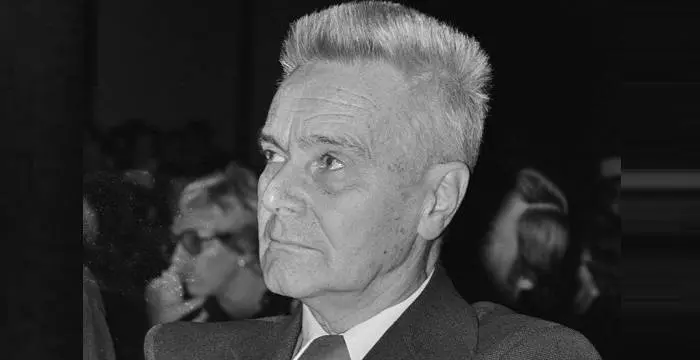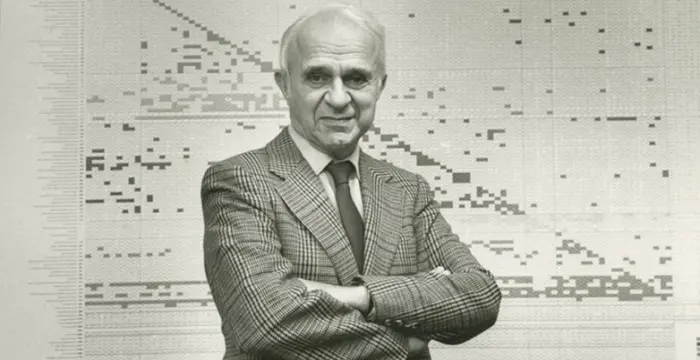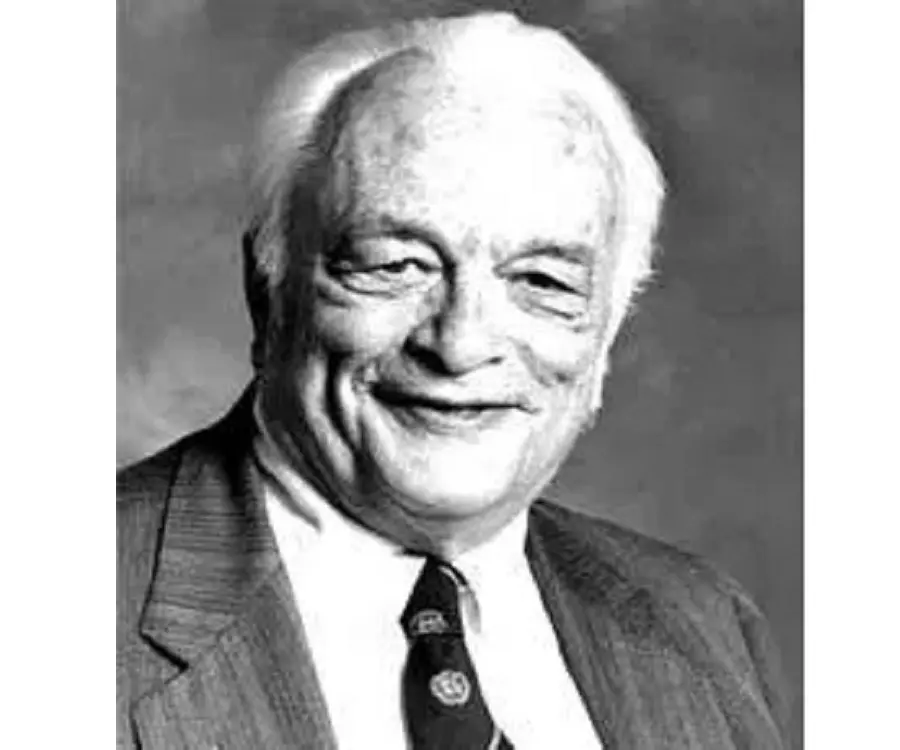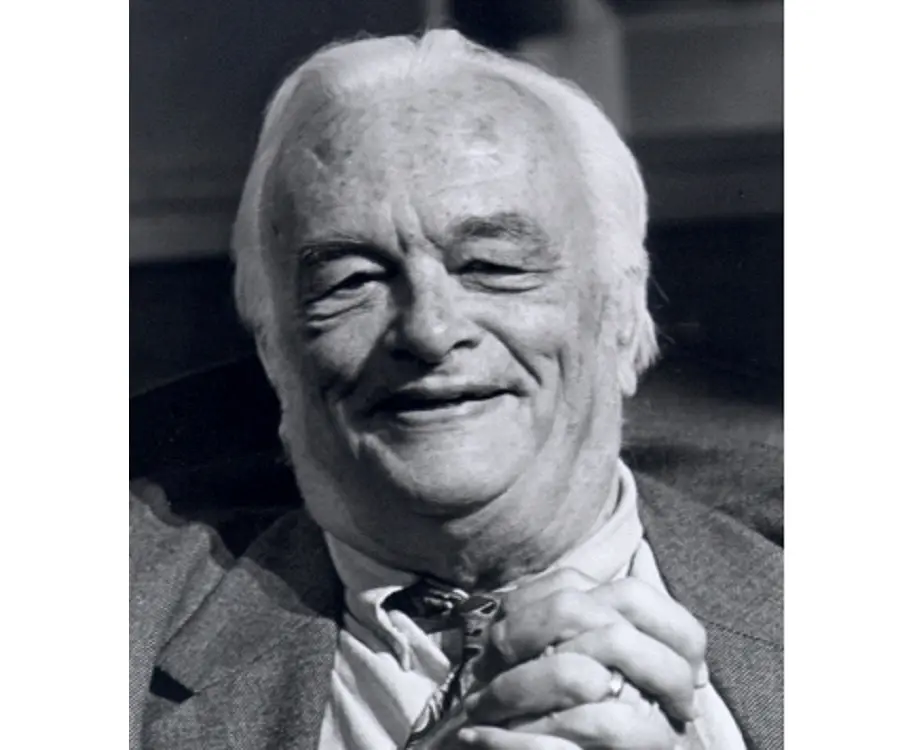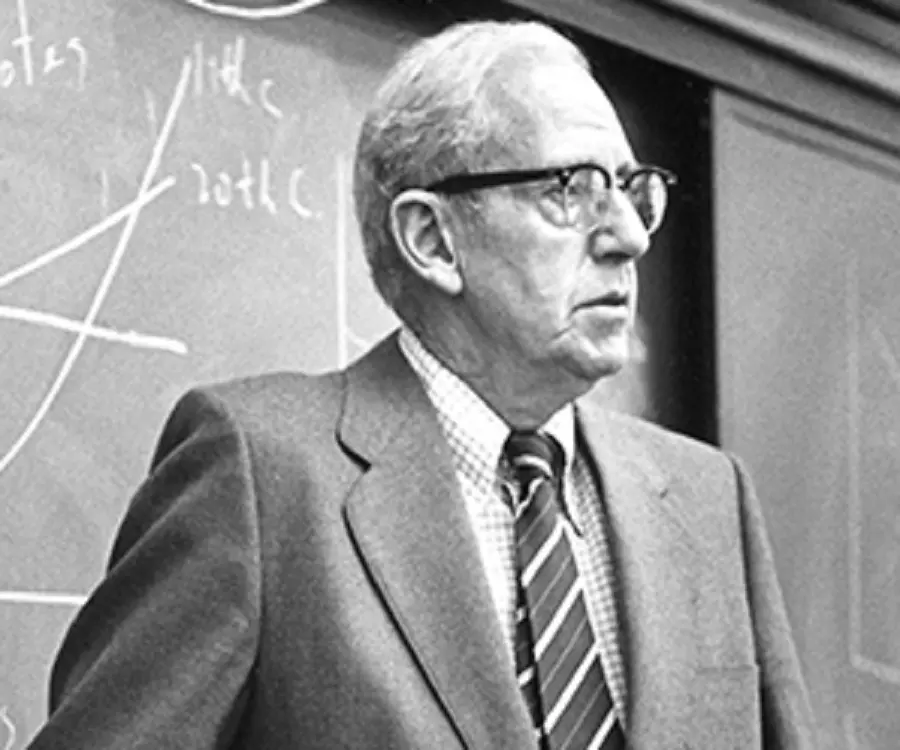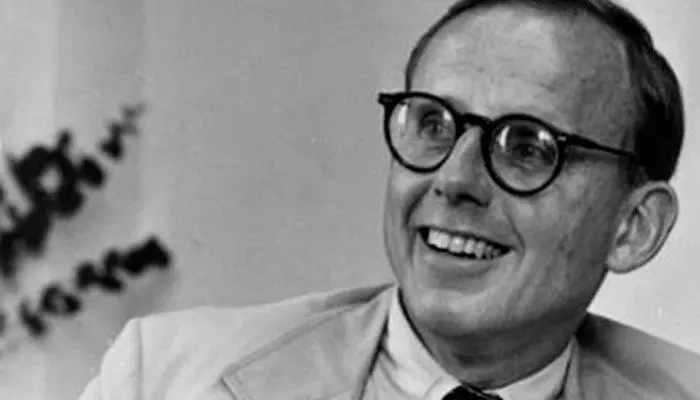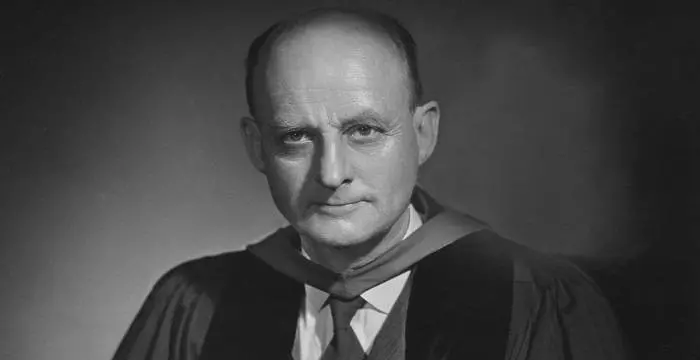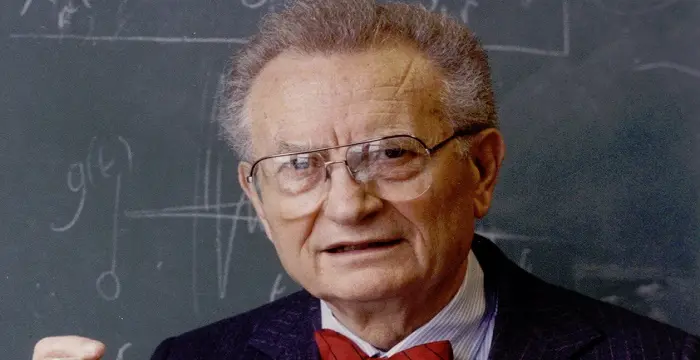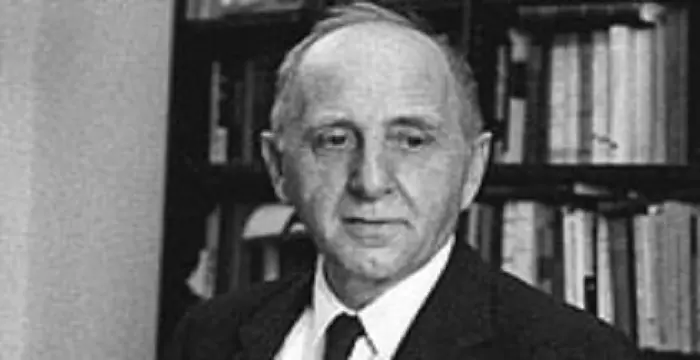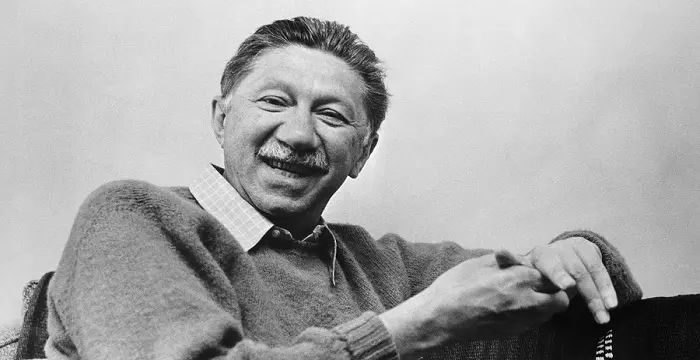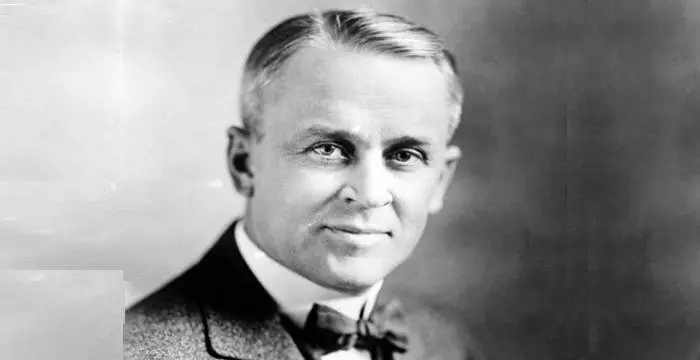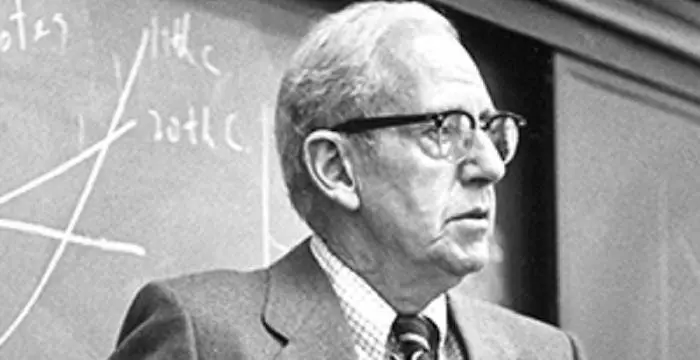
William Vickrey - Nobel Prize Winner in Economics, Life Achievements and Childhood
William Vickrey's Personal Details
William Vickrey was a Canadian born American economist, who won the Nobel Prize for research into the economic theory of incentives under asymmetric information
| Information | Detail |
|---|---|
| Birthday | June 21, 1914 |
| Died on | October 11, 1996 |
| Nationality | American |
| Famous | Columbia University, Yale University, Intellectuals & Academics, Economists, Nobel Prize Winner in Economics |
| Spouses | Cecile Thompson |
| Universities |
|
| Notable Alumnis |
|
| Birth Place | Victoria, British Columbia, Canada |
| Religion | Quaker |
| Gender | Male |
| Sun Sign | Gemini |
| Born in | Victoria, British Columbia, Canada |
| Famous as | Nobel Prize Winner in Economics |
| Died at Age | 82 |
// Famous Nobel Prize Winner in Economics
Jan Tinbergen
Jan Tinbergen was a noted 20th century Dutch economist, who won the Nobel Prize in Economics in 1969. Check out this biography to know about his childhood, family, life and achievements.
Wassily Leontief
Wassily Wassilyovich Leontief was a Russian-American economist renowned for his input–output theory of capital. Check out this biography to know about his childhood, family life and achievements.
William Vickrey's photo
Who is William Vickrey?
William Vickrey was a Canadian born American economist, known for propagating unusual solutions to everyday problems. Born in early twentieth century, he came into close contact with orphans from the Armenian holocaust early in his life. The experience had a profound effect on his young mind and he felt that every dollar he otherwise spent was a dollar he did not spend in helping the orphans. A well-known post-Keynesian economist, educated first at Yale and then at Columbia University, he spent all his life teaching at Columbia. He cared little for money matters or materialistic comfort or even getting credit for himself; he was more interested in propagating ideas and solving problems. When he received the Noble Prize, he was happy that government authorities would now find it harder to reject his proposals, caring very little for the prize money that accompanied it. Indeed, many of his suggestions like ‘congestion pricing’ were not accepted because of political considerations. However, his works had profound influence on other economists. For example, the modern theory of auction is based on his 1961 seminal work. A prolific writer, he had left behind 8 books, 140 published articles, 27 reviews and 61 unpublished articles and notes.
// Famous Yale University
Samuel P. Huntington
Samuel Phillips Huntington was a famous American political scientist who proposed the controversial thesis of ‘The Clash of Civilizations’. Find out more about his life in this biography
Reinhold Niebuhr
Reinhold Niebuhr was a German-American theologian, intellectual and political commentator who wrote the famous book, ‘Moral Man and Immoral Society’. This biography provides information about his profile, childhood, life and timeline.
Jennifer Connelly
Jennifer Connelly is an Academy Award winner American actress who started out as a child artist and reached the epitome of her film career with the movie ‘A Beautiful Mind’.
Childhood & Early Years
William Spencer Vickrey was born on June 21, 1914 in Victoria, the capital city of the Canadian province of British Columbia. His father, Charles Vernon Vickrey, was an American citizen while his mother, Ada Eliza nee Spencer Vickrey, was Canadian.
Three months after his birth, the family moved to USA, where his father became executive secretary of Near East Relief, a nonprofit organization devoted to helping orphans from the Armenian holocaust. Born eldest of his parents’ children, he also shared his breakfast table with Armenian orphans.
At the age of sixteen, he graduated from high school in Scarsdale and then enrolled at Phillips Academy Andover, a university-preparatory school for boarding and day students, graduating from there in 1931. Thereafter, he moved to the Yale University and completed his B.S. in mathematics in 1935.
In 1935, he enrolled at the Columbia University with economics, receiving his M.A. degree in 1937. To reach the university from his home, he used to take the train up to Harlem - 125th Street station and then roller-skate across town. Considered rather eccentric, he was equally admired by his friends.
Career
In 1937, William Vickrey began his career as junior economist at the National Resources Planning Board in Washington, remaining there till 1938. Also in 1938, he invented the cumulative averaging method of assessing income tax. It was a noble innovation and he himself called it his ‘proudest achievement’.
In 1939, he joined Twentieth Century Fund as a research assistant, working on efficient pricing of public utilities, especially electric supply. His works during this period had far reaching consequences.
When the United Sates joined the Second World War, Vickrey, as a conscientious objector, was required to give alternative service. Assigned at the U.S. Treasury Department, he spent part of his tenure designing inheritance tax for Puerto Rico.
In 1946, he joined Columbia University as a lecturer in economics. Working under Carl Summer Shoup and Robert M. Haig, he submitted his doctoral thesis entitled, ‘Agenda for Progressive Taxation’, receiving his PhD in economics in 1947. Later, it turned out to be his most well-known work.
In 1948, he was appointed to the post of Assistant Professor of Economics at the Columbia University. Two years later in 1950, he was made an Associate Professor. Meanwhile in 1949, he was made a member of the Shoup Mission, set up to develop a comprehensive tax structure in post war Japan.
In 1949-1950, working under the leadership of his research advisor Carl Summer Shoup, Vickrey, along with five other economists, toured Japan, proposing a new tax structure that would encourage voluntary compliances. In 1950, their proposal was enacted into law by Japanese Diet.
In 1951, he was elected to the Mayor's Committee on Management Survey to study transit fares in New York City. In the following year, he proposed that fares be increased both in high-traffic sections and peak times while being lowered in others.
Since the technology was not yet ready, it was rejected. The elected officials also found it rather risky. However, he did not give up the idea, continuing to work on it. All the while, he also continued teaching at the Columbia University.
In 1958, Vickrey became a full Professor at the Columbia University. In 1959, continuing to work on congestion pricing, he presented a proposal before a Congressional Committee, set up to investigate traffic congestion. In it, he suggested that the congestion can be controlled with electronically assessed user fee.
He suggested that each vehicle be equipped with a transponder, enabling traffic authorities to monitor when and how often it entered and left a congested area. The owner could then be billed accordingly; highest for the peak hours, gradually diminishing thereafter. However, this time too, his proposal was politely ignored.
In spite of repeated failure to have his proposal on traffic congestion accepted, Vickrey continued to work on the subject. Concurrently, he also worked on the theory of auction, producing his seminal paper on the subject in 1961. The new approach that he devised later became the foundation for further research.
In 1963, he published a paper entitled 'Pricing in Urban and Suburban Transport’ in the American Economic Review. It caught the attention of British authorities and he was invited to England, where he met the Minister of Transport. Later Singapore and Hong Kong installed a similar system.
In 1964, Vickrey was elected the Chairman of the Columbia Economics Department, holding the position till 1967. Concurrently, he started serving as a consultant to number of nations on matters of taxation, public utilities, transportation, and urban problems.
In 1971, he became McVickar Professor of Political Economy at the Columbia University. Sometime during this decade, he once again suggested congestion pricing for Hudson River crossings to the Port Authority of New York and New Jersey, but was once again ignored.
In 1981, Vickrey retired from teaching at Columbia University. During this period, apart from participating in number of professional organizations, he also lectured extensively.
In 1982, he was named Professor Emeritus at Columbia University. Even at this stage, he continued to maintain an active presence on the campus, working from his small office on the eighth floor of a building on Amsterdam Avenue and 118th Street, publishing several books and papers.
Since 1980s, his works focused mainly on macroeconomics stabilization function of the government. Revitalizing Keynesian theory, he favored policies that provide full employment. He was very much against what he called ''the mania for budget balancing'' because that would lead to less purchasing power and greater unemployment.
'Fifteen Fatal Fallacies of Financial Fundamentalism: A Disquisition on Demand-Side Economics’ written in September 1996, is perhaps the last major article written by Vickrey. In this concise article, he urged the readers to be “free from the dogmas of the apostles of austerity”.
Major Works
William Vickrey is best remembered for ‘Agenda for Progressive Taxation’, which he initially wrote as his doctoral thesis. Published in book form in 1972, it is now considered an economic classic. In this book, he advocated “optimal income tax” based on long-term earnings rather than on yearly income.
Another of Vickrey’s best known work is ‘Public Economics’. Published on 25 February 1994, the book is a collection of his papers scattered over various journals. The selected articles have been thoughtfully organized and the book offers an overview of his life’s work.
Awards & Achievements
In 1996, Vickrey co-received the Sveriges Riksbank Prize in Economic Sciences in Memory of Alfred Nobel for his "fundamental contributions to the economic theory of incentives under asymmetric information". As he died of cardiac failure three days after his name was announced it was received on his behalf by his colleague C. Lowell Harriss.
He was elected a Fellow of the Econometric Society in 1967, a Fellow of the American Economic Association in 1978 and Fellow of the National Academy of Sciences in 1996.
In 1992, he served as the President of the American Economic Association.
In 1979, he received an honorary degree from the University of Chicago.
Personal Life & Legacy
In 1951, William Vickrey married Cecil Thompson. They did not have any children and lived in Hastings-on-Hudson in New York. He was a Quaker by faith
In October 1996, as soon as his name as the recipient of that year’s Nobel Prize in economics was announced he suddenly became a celebrity. Apart from attending numerous telephone calls, he also had to attend number of press conferences, television and radio interviews, champagne parties, putting a strain on his health.
By 11 October 1996, he was back in his office, planning to have meetings with city transit officials. At 11 pm, he left his office to attend another conference. Around forty-five minutes later, he was found slumped behind the wheel of his car on the Hutchinson River Parkway, N.Y.
He was taken to St. Agnes Hospital, where he was pronounced dead. Autopsy revealed that he had a slightly enlarged heart and appeared to have died of sudden cardiac arrest caused by arrhythmia. The strain of last three days might have hastened the process. He was then 82 years old.
’Vickrey auction’, a type of sealed-bid auction, has been named in his honor. He was first to develop the concept academically.
Trivia
Although New York City officials refused to implement Vickrey’s policies on congestion pricing it was later adopted by electric and telephone utilities and airlines. Later, the policy was also partially adopted in London, Singapore and Hong Kong.
// Famous Economists
Bertil Gotthard Ohlin
Bertil Gotthard Ohlin was a famous Swedish economist. This biography profiles his childhood, family life & achievements.
Emily Greene Balch
Emily Greene Balch was an American economist, sociologist and pacifist who won the 1946 Nobel Peace Prize. This biography of Emily Greene Balch provides detailed information about her childhood, life, achievements, works & timeline.
Paul Samuelson
Nobel laureate Paul Anthony Samuelson is referred to as the ‘Father of Modern Economics’. This biography profiles his childhood, life, career, achievements and interesting facts about him.
William Vickrey's awards
| Year | Name | Award |
|---|---|---|
Other | ||
| 0 | 1996 - Nobel Memorial Prize award | |
William Vickrey biography timelines
- // 21st Jun 1914William Spencer Vickrey was born on June 21, 1914 in Victoria, the capital city of the Canadian province of British Columbia. His father, Charles Vernon Vickrey, was an American citizen while his mother, Ada Eliza nee Spencer Vickrey, was Canadian.
- // 1931 To 1935At the age of sixteen, he graduated from high school in Scarsdale and then enrolled at Phillips Academy Andover, a university-preparatory school for boarding and day students, graduating from there in 1931. Thereafter, he moved to the Yale University and completed his B.S. in mathematics in 1935.
- // 1935 To 1937In 1935, he enrolled at the Columbia University with economics, receiving his M.A. degree in 1937. To reach the university from his home, he used to take the train up to Harlem - 125th Street station and then roller-skate across town. Considered rather eccentric, he was equally admired by his friends.
- // 1939In 1939, he joined Twentieth Century Fund as a research assistant, working on efficient pricing of public utilities, especially electric supply. His works during this period had far reaching consequences.
- // 1946 To 1947In 1946, he joined Columbia University as a lecturer in economics. Working under Carl Summer Shoup and Robert M. Haig, he submitted his doctoral thesis entitled, ‘Agenda for Progressive Taxation’, receiving his PhD in economics in 1947. Later, it turned out to be his most well-known work.
- // 1951In 1951, he was elected to the Mayor's Committee on Management Survey to study transit fares in New York City. In the following year, he proposed that fares be increased both in high-traffic sections and peak times while being lowered in others.
- // 1951In 1951, William Vickrey married Cecil Thompson. They did not have any children and lived in Hastings-on-Hudson in New York. He was a Quaker by faith
- // 1958 To 1959In 1958, Vickrey became a full Professor at the Columbia University. In 1959, continuing to work on congestion pricing, he presented a proposal before a Congressional Committee, set up to investigate traffic congestion. In it, he suggested that the congestion can be controlled with electronically assessed user fee.
- // 1961In spite of repeated failure to have his proposal on traffic congestion accepted, Vickrey continued to work on the subject. Concurrently, he also worked on the theory of auction, producing his seminal paper on the subject in 1961. The new approach that he devised later became the foundation for further research.
- // 1963In 1963, he published a paper entitled 'Pricing in Urban and Suburban Transport’ in the American Economic Review. It caught the attention of British authorities and he was invited to England, where he met the Minister of Transport. Later Singapore and Hong Kong installed a similar system.
- // 1964 To 1967In 1964, Vickrey was elected the Chairman of the Columbia Economics Department, holding the position till 1967. Concurrently, he started serving as a consultant to number of nations on matters of taxation, public utilities, transportation, and urban problems.
- // 1967He was elected a Fellow of the Econometric Society in 1967, a Fellow of the American Economic Association in 1978 and Fellow of the National Academy of Sciences in 1996.
- // 1971In 1971, he became McVickar Professor of Political Economy at the Columbia University. Sometime during this decade, he once again suggested congestion pricing for Hudson River crossings to the Port Authority of New York and New Jersey, but was once again ignored.
- // 1972William Vickrey is best remembered for ‘Agenda for Progressive Taxation’, which he initially wrote as his doctoral thesis. Published in book form in 1972, it is now considered an economic classic. In this book, he advocated “optimal income tax” based on long-term earnings rather than on yearly income.
- // 1979In 1979, he received an honorary degree from the University of Chicago.
- // 1980Since 1980s, his works focused mainly on macroeconomics stabilization function of the government. Revitalizing Keynesian theory, he favored policies that provide full employment. He was very much against what he called ''the mania for budget balancing'' because that would lead to less purchasing power and greater unemployment.
- // 1981In 1981, Vickrey retired from teaching at Columbia University. During this period, apart from participating in number of professional organizations, he also lectured extensively.
- // 1982In 1982, he was named Professor Emeritus at Columbia University. Even at this stage, he continued to maintain an active presence on the campus, working from his small office on the eighth floor of a building on Amsterdam Avenue and 118th Street, publishing several books and papers.
- // 1992In 1992, he served as the President of the American Economic Association.
- // 25th Feb 1994Another of Vickrey’s best known work is ‘Public Economics’. Published on 25 February 1994, the book is a collection of his papers scattered over various journals. The selected articles have been thoughtfully organized and the book offers an overview of his life’s work.
- // 1996In 1996, Vickrey co-received the Sveriges Riksbank Prize in Economic Sciences in Memory of Alfred Nobel for his "fundamental contributions to the economic theory of incentives under asymmetric information". As he died of cardiac failure three days after his name was announced it was received on his behalf by his colleague C. Lowell Harriss.
- // Sep 1996'Fifteen Fatal Fallacies of Financial Fundamentalism: A Disquisition on Demand-Side Economics’ written in September 1996, is perhaps the last major article written by Vickrey. In this concise article, he urged the readers to be “free from the dogmas of the apostles of austerity”.
- // Oct 1996In October 1996, as soon as his name as the recipient of that year’s Nobel Prize in economics was announced he suddenly became a celebrity. Apart from attending numerous telephone calls, he also had to attend number of press conferences, television and radio interviews, champagne parties, putting a strain on his health.
- // 11th Oct 1996By 11 October 1996, he was back in his office, planning to have meetings with city transit officials. At 11 pm, he left his office to attend another conference. Around forty-five minutes later, he was found slumped behind the wheel of his car on the Hutchinson River Parkway, N.Y.
// Famous Columbia University
Helen Morris
Helen Morris is a former book editor, TV producer and the wife of Academy Award winning director Martin Scorsese. Check out this biography to know about her birthday, childhood, family life, achievements and fun facts about her.
Simon Kuznets
Simon Kuznets was a noted Russian-American economist, statistician, demographer, and economic historian. Check out this biography to know about his childhood, family life, achievements and other facts related to his life.
Anna Paquin
Anna Paquin is a Kiwi film, theatre and television actress known for her roles in movies like ‘The Piano’, ‘Fly Away Home’, and ‘X-Men. This biography provides detailed information about her childhood, life, achievements, works & timeline.
Abraham Maslow
Abraham Maslow was a humanistic psychologist best known for his theory of self-actualization. This biography of Abraham Maslow provides detailed information about his childhood, life, achievements, works & timeline.
Robert Andrews Millikan
Robert Andrews Millikan was an eminent American experimental physicist who won the Nobel Prize for Physics in 1923 for his work on photoelectric effect. Check out this biography to know about his childhood, life, achievements, works & timeline.
Lauryn Hill
Lauryn Noelle Hill is a famous hip-hop female artist from America who is into singing, songwriting, rapping, production and acting. Check out this biography to get detailed information on her life.
William Vickrey's FAQ
What is William Vickrey birthday?
William Vickrey was born at 1914-06-21
When was William Vickrey died?
William Vickrey was died at 1996-10-11
Where was William Vickrey died?
William Vickrey was died in Harrison
Which age was William Vickrey died?
William Vickrey was died at age 82
Where is William Vickrey's birth place?
William Vickrey was born in Victoria, British Columbia, Canada
What is William Vickrey nationalities?
William Vickrey's nationalities is American
Who is William Vickrey spouses?
William Vickrey's spouses is Cecile Thompson
What was William Vickrey universities?
William Vickrey studied at Columbia University,Yale University, Columbia University, Yale University
What was William Vickrey notable alumnis?
William Vickrey's notable alumnis is Columbia University, Yale University
What is William Vickrey's religion?
William Vickrey's religion is Quaker
What is William Vickrey's sun sign?
William Vickrey is Gemini
How famous is William Vickrey?
William Vickrey is famouse as Nobel Prize Winner in Economics
